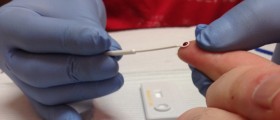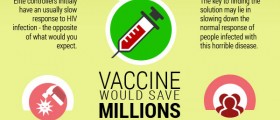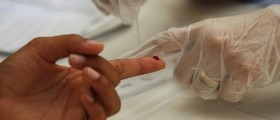
HIV, also known as the human immunodeficiency virus, causes AIDS or acquired immune deficiency syndrome. This condition increasingly reduces the efficiency of the immune system and leaves individuals vulnerable to opportunistic infections and tumors. Recent statistics from 2007 reveal that 33.2 million people worldwide had AIDS that year. AIDS killed 2.1 million people throughout that year, including 330,000 children, and 76% of those deaths occurred in sub-Saharan Africa. The HIV usually does not show any symptoms at the early stage so an infected person often continues spreading a virus to other people for years, without knowing it. Testing is the only way to know one’s HIV status.
What Is an HIV Test?
HIV test looks for signs of HIV virus in patients’ bodies. Once HIV enters the body, the immune system starts to produce antibodies, which fight the foreign invaders. However, HIV is a specific infection as no immune system can beat it, but the presence of antibodies is used to tell whether a person has HIV in the system.
Who Should Get Tested?
There is no mandatory HIV testing. This test is required in some states for pregnant women, during the blood donation, and sometimes when there is an occupational exposure, or prior to issuing life insurance policies. Around 25 percent of all people infected with HIV are unaware of their infection. Only those at risk for HIV infection should be tested but the testing is recommended even for the general population, as it is the only way to end the epidemic.
People who practice receptive anal intercourse are at the highest risk of AIDS People who share needles to inject drugs are also very exposed to the possible infection. People who practice unprotected vaginal sex, have sex with multiple or anonymous partners, should also get tested.
How Does an HIV Test Work?
HIV testing is usually performed by giving a sample of blood for analysis. Other HIV tests use urine or a swab of fluids from the patient's mouth instead. A test usually takes a couple of days to complete, but there are also rapid HIV tests, which give results in no more than 20 minutes. If a test confirms the presence of the HIV virus, a person will probably have another test to confirm the positive result. Confirmatory test usually takes a bit longer to complete and a person will need to wait a couple of days or even a couple of weeks to get the final diagnosis.
















Your thoughts on this
Loading...